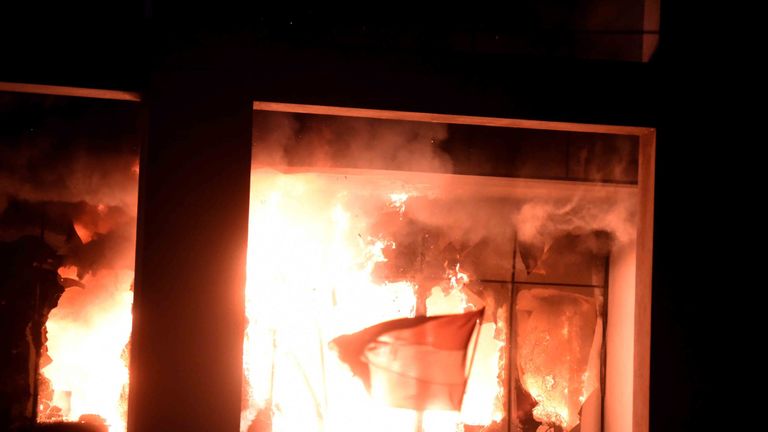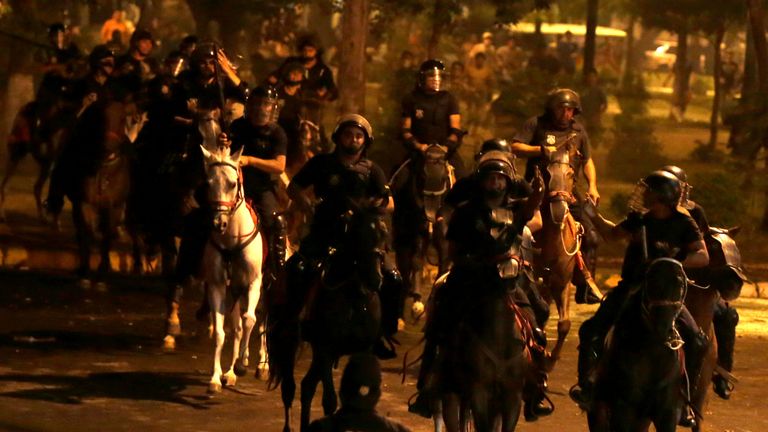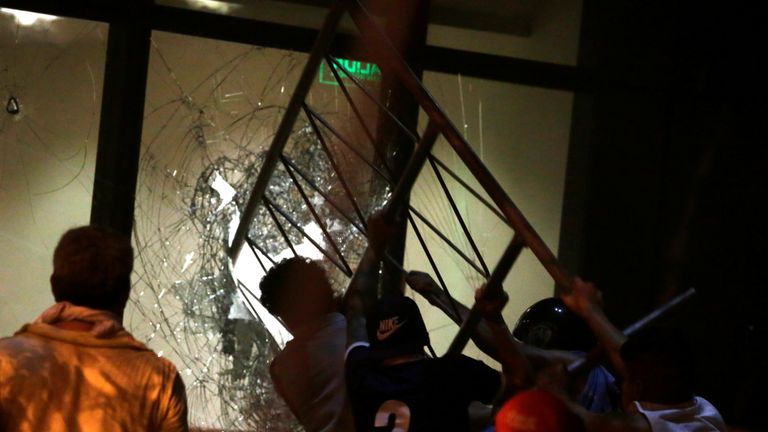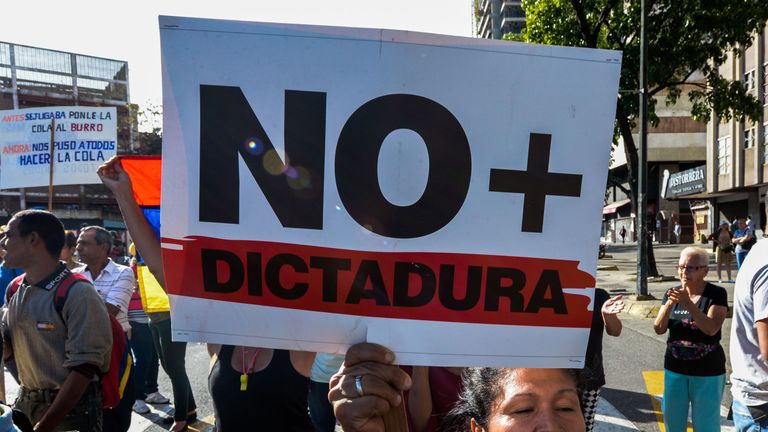Fiery protests in Paraguay after controversial Congress vote
Riots unfolded in the capital after lawmakers supported a constitutional amendment allowing the president to seek a second term.
Saturday 1 April 2017 16:13, UK
Violent protests have erupted in Paraguay after lawmakers secretly voted in favour of a constitutional amendment allowing the country's president to seek re-election.
Demonstrators stormed Congress and set fire to the building - and footage showed protesters smashing windows, burning tyres and clashing with police.
Riot officers used water cannon, tear gas and rubber bullets to try and bring the unruly crowds under control.
Several politicians and journalists - as well as many police officers - have reportedly been injured in the unrest, with President Horacio Cartes calling for calm in a statement released on Twitter.
"Democracy is not conquered or defended with violence and you can be sure this government will continue to put its best effort into maintaining order in the republic," he wrote.
The landlocked South American country prohibits re-election, a measure introduced after a brutal dictatorship fell in 1989.
Opponents said allowing presidents to seek more than one five-year term would weaken Paraguay's democratic institutions, and described the vote as illegal.
The controversial proposal now goes from the Senate to the House, where it appears to have strong support from lawmakers.
Mr Cartes, a soft drink and tobacco mogul, was elected in 2013 and is due to leave office next year - but some of his backers want him to run again.
An opposition party has filed an appeal to the Supreme Court to try and get the congressional vote overturned.
Senator Desiree Masi, from the rival Progressive Democratic Party, said: "A coup has been carried out. We will resist and we invite the people to resist with us."
In Venezuela, another South American country gripped by protests, the pro-government Supreme Court backtracked on its move to strip congress of its legislative powers.
The Supreme Court's attempt to nullify the legislative body had caused outrage abroad and turmoil at home, with critics saying it amounted to a lurch toward dictatorship.
The announcement of the reversal was made by President Nicolas Maduro, who had been accused of seeking to increase its power, in a televised speech overnight.
It came just hours before the opposition hoped to mount a major protest in Caracas against what it had called an attempted coup by Mr Maduro.






